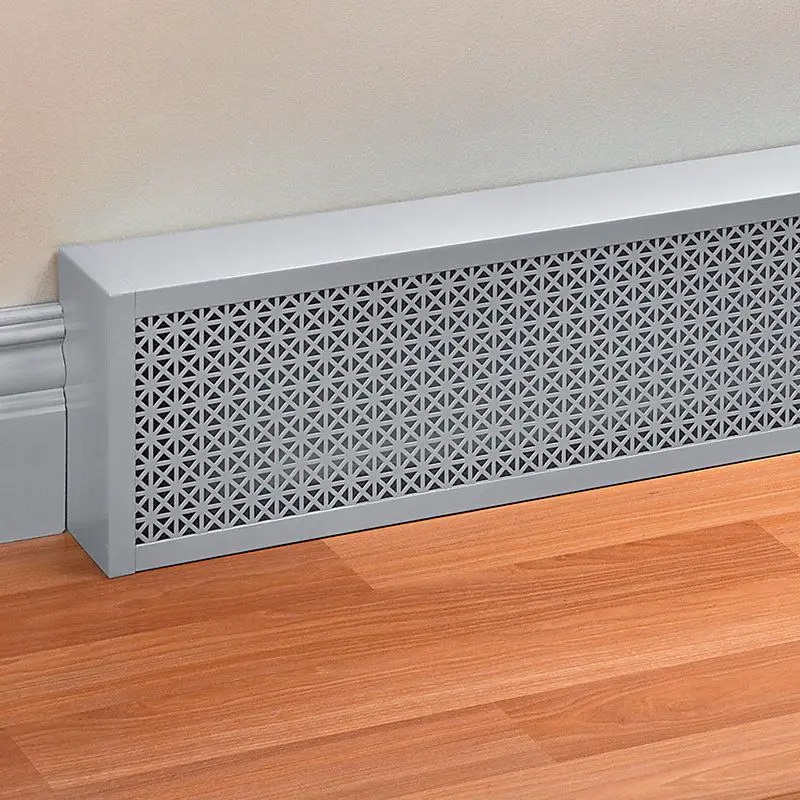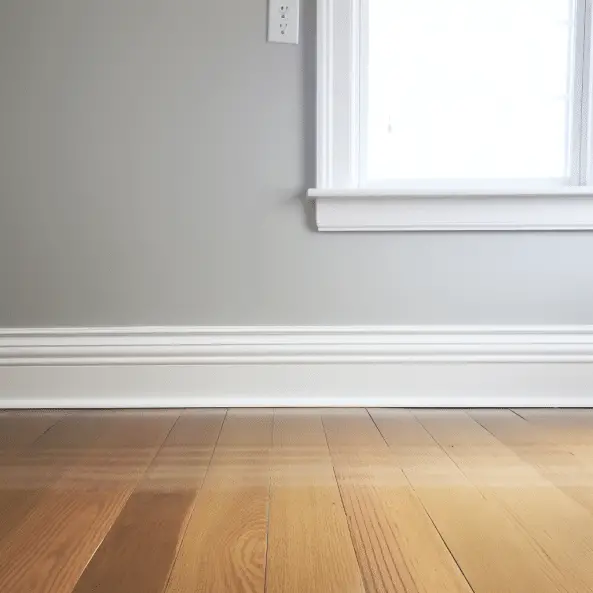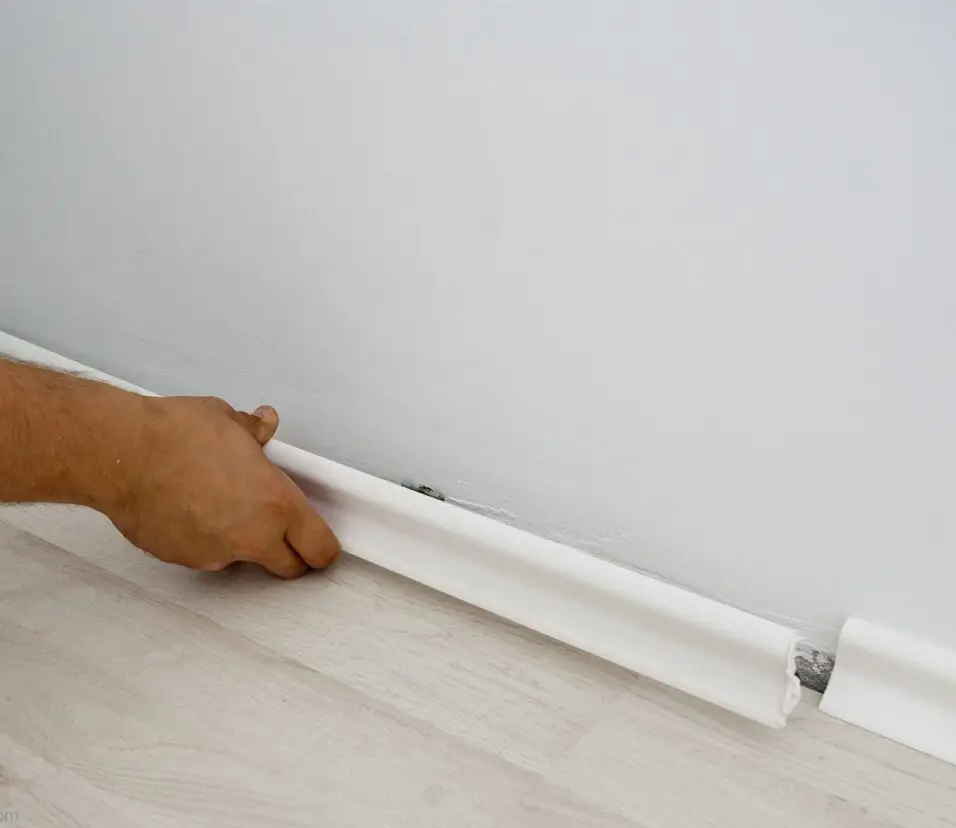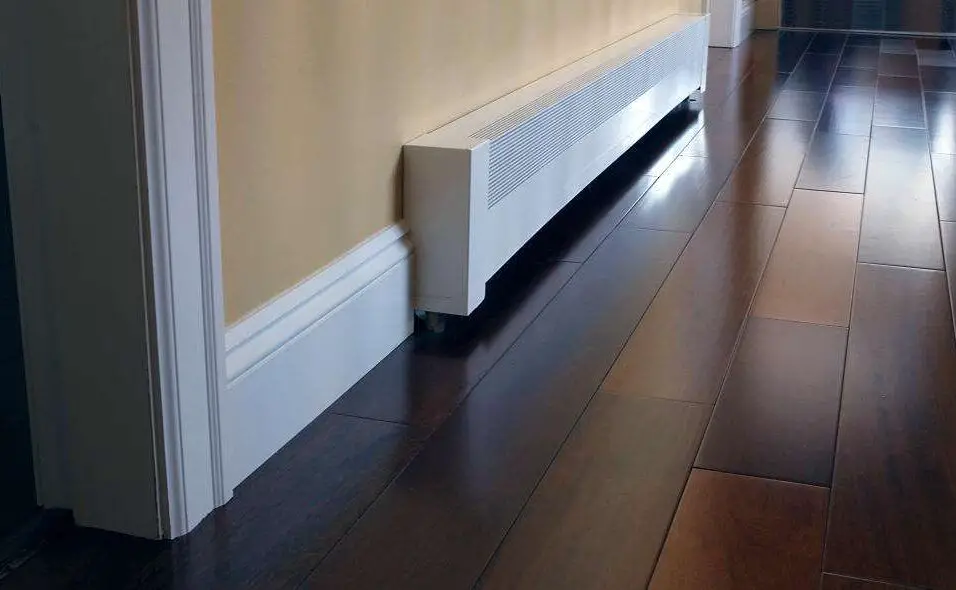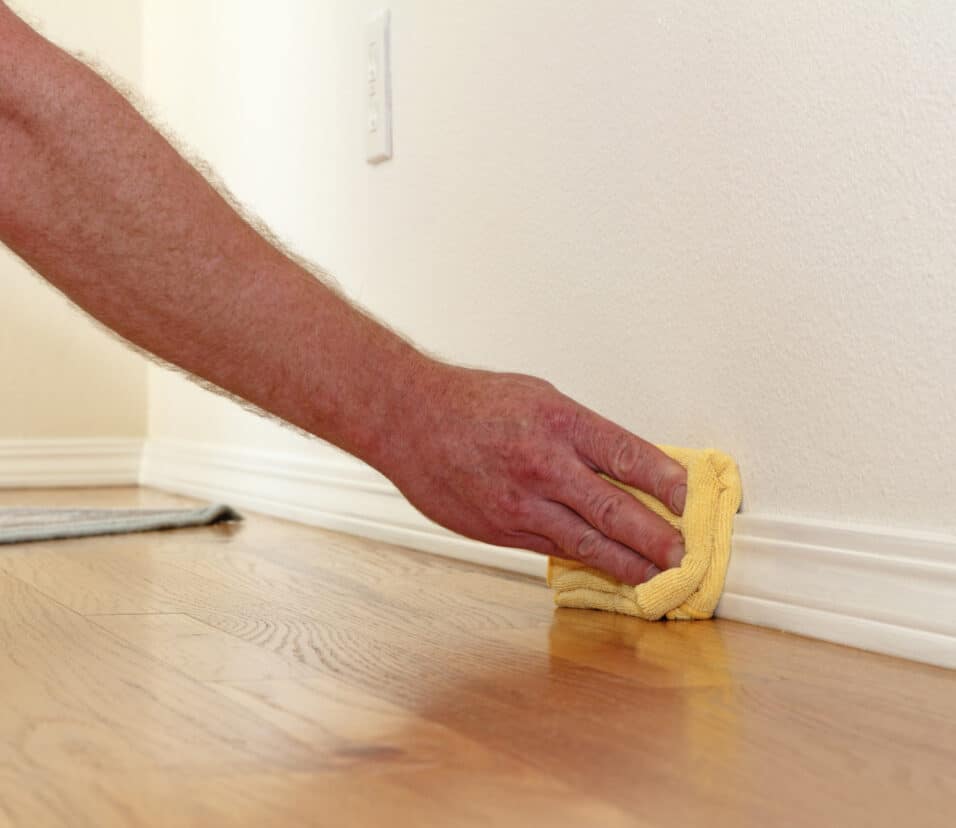Why Do Baseboard Heaters Click
Introduction
Why Do Baseboard Heaters Click: Baseboard heaters are a popular choice for heating homes and offices due to their efficiency and affordability. However, one common issue that many people experience with these heaters is the clicking noise they make. This noise can be quite annoying and disruptive, especially when trying to relax or concentrate.
One possible reason for the clicking noise is the expansion and contraction of the heating elements. Baseboard heaters work by using electric heating elements to warm the air in the room. These elements are made of metal, which expands when heated and contracts when cooled. As the elements heat up and cool down, they can create a clicking sound as they expand and contract. This is a normal occurrence and is not usually a cause for concern.
Another potential cause of the clicking noise is the presence of dust or debris inside the heater. Over time, dust and other particles can accumulate inside the baseboard heater, particularly in the fins or grilles. When the heater turns on, the air flow can cause these particles to move around, resulting in a clicking sound. Regular cleaning and maintenance of the heater can help prevent this issue.
In some cases, the clicking noise may be a sign of a more serious problem. For example, if the clicking is accompanied by a burning smell or the heater is not producing enough heat, it could indicate a faulty or damaged component. In such cases, it is important to have the heater inspected and repaired by a professional to ensure safe and efficient operation.
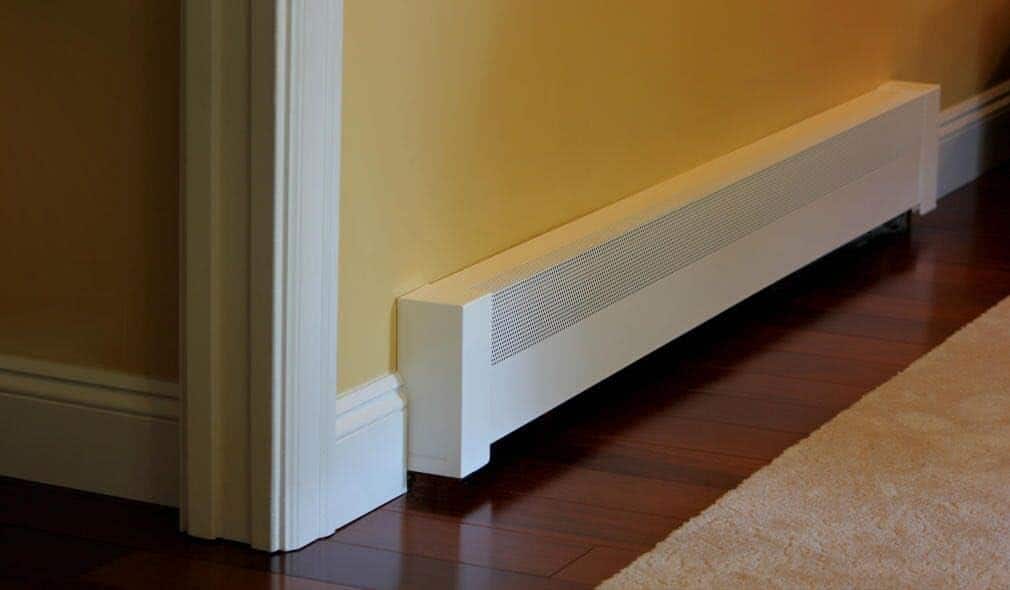
Why is my baseboard heater knocking?
As hot water enters heating pipes, the pipes expand and can rub against the floor, creating a knocking noise. You can help muffle the sound by placing wax paper or insulators between the pipes and flooring. Baseboard heaters have a series of metal fins that expand as they heat cool air.
Baseboard heaters are a popular choice for heating homes because of their efficiency and affordability. However, one common issue that homeowners may encounter with these heaters is knocking or banging noises. These noises can be quite annoying and may disrupt the peaceful atmosphere of your home. So, why is your baseboard heater knocking?
There are several possible reasons for this problem. One of the most common causes is trapped air within the heating system. Over time, air can become trapped in the pipes or radiators of your baseboard heater, causing the knocking sound. When the air bubbles move through the pipes, they can create a knocking noise.
Another possible cause of knocking in baseboard heaters is the expansion and contraction of the metal components. As the heater heats up, the metal expands, and as it cools down, it contracts. This expansion and contraction can cause the pipes or other metal components to rub against each other, resulting in a knocking sound. This is more likely to occur in older heaters or those that have not been properly maintained.
Additionally, the knocking noise could be caused by loose or damaged components within the heater. It is important to regularly inspect and tighten any loose components to prevent this issue.
Why does my electric heater make a clicking noise?
This is because of the switches inside the unit responding to the startup process circulating air inside the heating element. When they start heating up. Electric fan heaters click away when you turn them on. This is due to the molecules expanding as they heat.
There can be several reasons why an electric heater makes a clicking noise. One possible reason for the clicking noise is the expansion and contraction of the heating elements. As the heater warms up, the metal components expand, and as it cools down, they contract. This can cause a clicking sound as the metal adjusts to the temperature changes. In most cases, this is a normal operating sound and does not indicate a problem with the heater.
Another possible cause of the clicking noise is a loose or faulty electrical connection. Over time, the electrical connections in the heater can become loose or worn out, resulting in a clicking sound. This can be a safety hazard and should be addressed immediately.
Why are my baseboard heaters so noisy?
These sounds are mostly due to the metal reacting to sudden changes in temperature when they are turned on after a prolonged shutdown, or when they begin to heat up when the temperature drops. Noises are caused by the expansion when starting, and the contraction when cooling, of the metal components of the baseboards.
Baseboard heaters can be a great source of warmth during the colder months, but they can also be quite noisy. If you find yourself wondering why your baseboard heaters are making so much noise, there are a few possible explanations.
One common reason for noisy baseboard heaters
The expansion and contraction of the metal components as they heat up and cool down. This can cause popping or creaking sounds, especially when the heater is first turned on or off. The noise is typically harmless and is simply a result of the natural movement of the materials.
Another potential cause of noise in baseboard heaters is the buildup of dust and debris. Over time, dirt and other particles can accumulate in the heating elements, causing them to vibrate or rattle. This can create a buzzing or humming sound that can be quite annoying. Regular cleaning and maintenance can help prevent this issue.
In some cases, the noise may be due to loose or damaged components within the heater. Loose screws, brackets, or fins can create rattling or banging sounds. If you suspect this is the cause of the noise, it may be necessary to open up the heater and tighten or replace any loose or damaged parts.
Finally, it’s worth noting that some baseboard heaters are simply louder than others. This can be due to differences in design or construction. If the noise is particularly bothersome, you may want to consider replacing your current heater with a quieter model.
Can baseboard heaters burst?
In other words, even if you switch to oil or gas for your boiler, when you lose electricity, you still would not have power to circulate water through your baseboard water system, and therefore your pipes could still freeze and burst.
Baseboard heaters are a popular choice for heating homes, as they are efficient and provide a consistent source of warmth. However, like any heating system, there is always a risk of malfunctions or accidents occurring. One concern that homeowners may have is whether baseboard heaters can burst.
Baseboard heaters are typically filled with a heating element, such as oil or water, that is used to generate heat. These heating elements are contained within a sealed unit, which helps to prevent leaks or bursts. However, in rare cases, baseboard heaters can experience a malfunction that could lead to a burst.
One possible cause of a baseboard heater bursting is a build-up of pressure within the unit. This can occur if there is a blockage or restriction in the flow of the heating element, causing it to overheat and expand. If the pressure becomes too great, it can cause the unit to burst, potentially causing damage to the surrounding area.
Another potential cause of a baseboard heater bursting is a faulty thermostat or control valve. If these components fail, they may allow the heating element to continue to heat up, even when it is not needed. This can lead to a build-up of pressure within the unit, increasing the risk of a burst.
It is important to note that the risk of a baseboard heater bursting is relatively low, especially if the unit is properly maintained and inspected regularly. However, homeowners should still be aware of the potential risks and take steps to prevent malfunctions or accidents from occurring.
Why does my radiant heat make a clicking sound?
Trapped air in the heating system
Water and air flowing through pipes and radiators can result in clicking, ticking or tapping noises. While the sound is a little irritating, more importantly, this trapped air could mean your radiators aren’t heating up properly.
Radiant heat systems are known for their efficiency and comfort, but sometimes they can develop issues that cause them to make clicking sounds. These sounds can be quite annoying and may indicate a problem with the system. Understanding why your radiant heat makes a clicking sound can help you identify and resolve the issue.
One possible reason for the clicking sound is the expansion and contraction of the pipes and other components of the radiant heat system. As the system heats up, the pipes and other materials expand, and as they cool down, they contract. This expansion and contraction can cause clicking sounds as the materials shift and move. While this is a normal occurrence, excessive clicking may indicate that the system is not properly installed or that there are loose components.
Possible cause of the clicking sound is air trapped in the system
When air gets trapped in the pipes or other components, it can cause the system to make clicking or banging sounds. This is often referred to as “”water hammer”” and can be resolved by bleeding the air out of the system. Bleeding the air involves opening a valve or using a bleed key to release the trapped air.
Additionally, the clicking sound could be caused by a faulty or malfunctioning component within the radiant heat system. This could be a faulty valve, pump, or thermostat. If you suspect that a specific component is causing the clicking sound, it is best to contact a professional to inspect and repair the system.
There are several possible reasons why your radiant heat system may be making a clicking sound. It could be due to the normal expansion and contraction of the materials, trapped air in the system, or a faulty component. Identifying the cause of the clicking sound is important in order to resolve the issue and ensure the proper functioning of your radiant heat system.
How do baseboard heaters produce clicking noises?
Baseboard heaters can produce clicking noises due to a few different reasons. One common cause is the expansion and contraction of the heating elements as they heat up and cool down. This can create clicking or popping sounds as the metal expands and contracts. Another possible cause is the buildup of dust or debris on the heating elements. When the heater turns on, the dust can burn off, causing a clicking sound. Additionally, clicking noises can also be caused by loose or faulty electrical connections within the heater.
If you notice clicking sounds coming from your baseboard heater, it is important to determine the cause to ensure there is no underlying problem. In some cases, clicking sounds may be normal and simply a result of the heater’s operation. However, if the clicking sounds are accompanied by other issues such as a decrease in heating performance or unusual smells, it could indicate a problem that requires attention.
To reduce or eliminate clicking sounds from baseboard heaters, there are a few steps you can take. First, make sure the heater is clean and free of any dust or debris. Regularly vacuuming or dusting the heating elements can help prevent buildup and reduce clicking noises. Additionally, checking and tightening any loose electrical connections can also help eliminate clicking sounds. If the clicking noises persist or are accompanied by other issues, it is recommended to consult a professional technician to inspect and repair the baseboard heater.
Are clicking sounds from baseboard heaters normal?
Yes, clicking sounds from baseboard heaters are generally considered normal and are a common occurrence. These sounds are typically caused by the expansion and contraction of the heating elements as they heat up and cool down. As the metal components of the heater expand and contract, they can create clicking or popping noises. This is especially true when the heater is first turned on or when it is cooling down after being turned off.
It is important to note that while clicking sounds are normal, excessively loud or persistent clicking noises could indicate a problem with the baseboard heater. If the clicking sounds are accompanied by other issues such as a lack of heat or strange smells, it may be necessary to have the heater inspected by a professional. In most cases, however, occasional clicking sounds are nothing to be concerned about and do not require any action.
Can clicking sounds from baseboard heaters indicate a problem?
Yes, clicking sounds from baseboard heaters can indicate a problem. While it is normal for baseboard heaters to make some noise as they heat up and cool down, persistent or loud clicking sounds may be a sign of an underlying issue. One possible cause of clicking sounds is the expansion and contraction of the heating elements as they heat up and cool down. However, if the clicking sounds are accompanied by other symptoms such as a decrease in heating efficiency or a strange odor, it could indicate a more serious problem.
One potential issue that can cause clicking sounds is a faulty thermostat or control valve. If these components are not functioning properly, they may cause the heater to turn on and off rapidly, resulting in clicking noises. Another possible cause is a buildup of debris or dust in the heating elements, which can cause them to become unbalanced and produce clicking sounds. Additionally, loose or damaged electrical connections can also lead to clicking noises.
If you are experiencing clicking sounds from your baseboard heater, it is recommended to have it inspected by a professional. They can diagnose the problem and determine the best course of action to resolve it. In some cases, a simple cleaning or adjustment may be all that is needed. However, if there is a more serious issue, such as a faulty component, it may need to be replaced. Regular maintenance and cleaning of baseboard heaters can help prevent clicking sounds and ensure their optimal performance.
What can be done to reduce or eliminate clicking sounds from baseboard heaters?
Clicking sounds from baseboard heaters can be quite annoying and disruptive, especially when trying to relax or sleep. Fortunately, there are several steps you can take to reduce or eliminate these noises and restore peace and quiet to your home.
1. Bleed the air out of the system: Clicking sounds in baseboard heaters are often caused by trapped air bubbles within the system. To address this issue, you can bleed the air out of the system by opening the air bleeder valve located on the heater. This will release any trapped air and help reduce or eliminate the clicking noises.
2. Check for loose components: Another common cause of clicking sounds is loose components within the baseboard heater. Over time, screws and other fasteners can become loose, resulting in vibrations and clicking noises. Inspect the heater and tighten any loose components to see if this resolves the issue.
3. Clean the heating elements: Dust and debris can accumulate on the heating elements of baseboard heaters, causing them to make clicking sounds. Regularly cleaning the heating elements with a soft brush or vacuum can help prevent this buildup and reduce the occurrence of clicking noises.
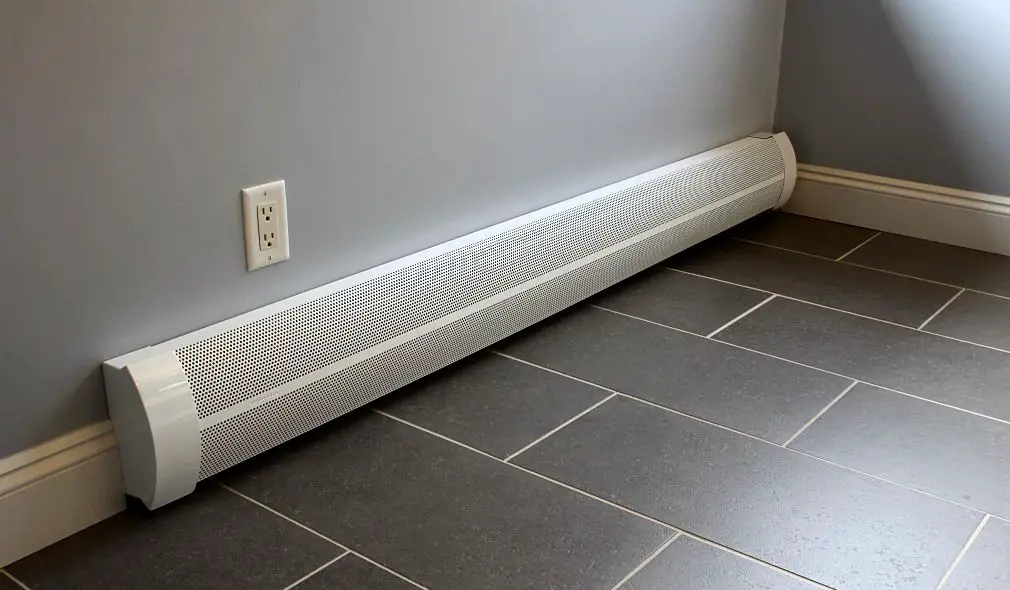
Conclusion
Overall, the clicking sound that noisy baseboard heaters make can be attributed to a few different factors. One possible cause is the expansion and contraction of the heating elements as they heat up and cool down. This is a normal occurrence and is often more noticeable in older or poorly maintained heaters. Another potential reason for the clicking noise is the buildup of dust or debris on the heating elements, which can cause them to make noise as they heat up. Additionally, the clicking sound may be a result of loose or faulty electrical connections within the heater.
It is important to note that while the clicking sound itself may not be a cause for concern, it is always a good idea to have a professional inspect your baseboard heater if you notice any unusual noises or if the clicking becomes excessively loud or frequent. A qualified technician will be able to identify and address any underlying issues that may be contributing to the noise.
The clicking sound that baseboard heaters make is a common occurrence and can be caused by a variety of factors. It is often a result of the expansion and contraction of the heating elements, the buildup of dust or debris, or loose electrical connections. While the clicking sound itself may not be a cause for concern, it is always recommended to have a professional inspect your heater if you notice any unusual noises or if the clicking becomes excessive. By addressing any underlying issues, you can ensure that your baseboard heater operates efficiently and safely.



